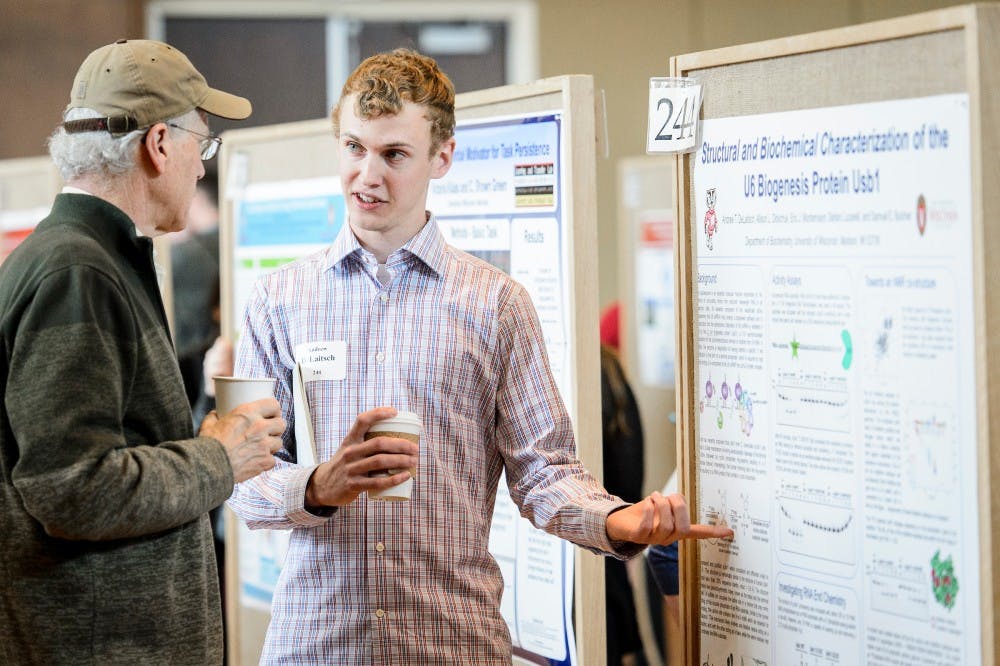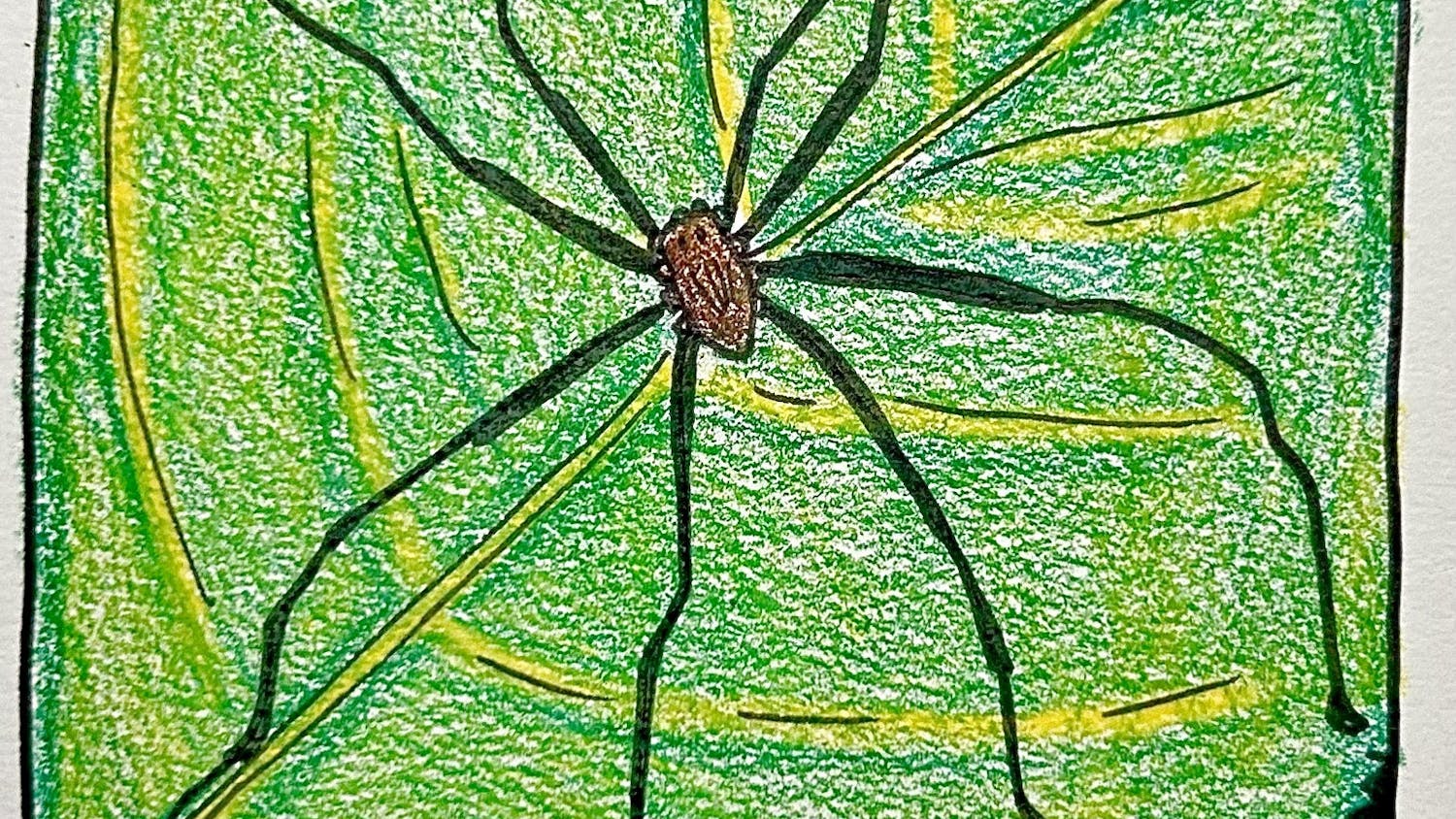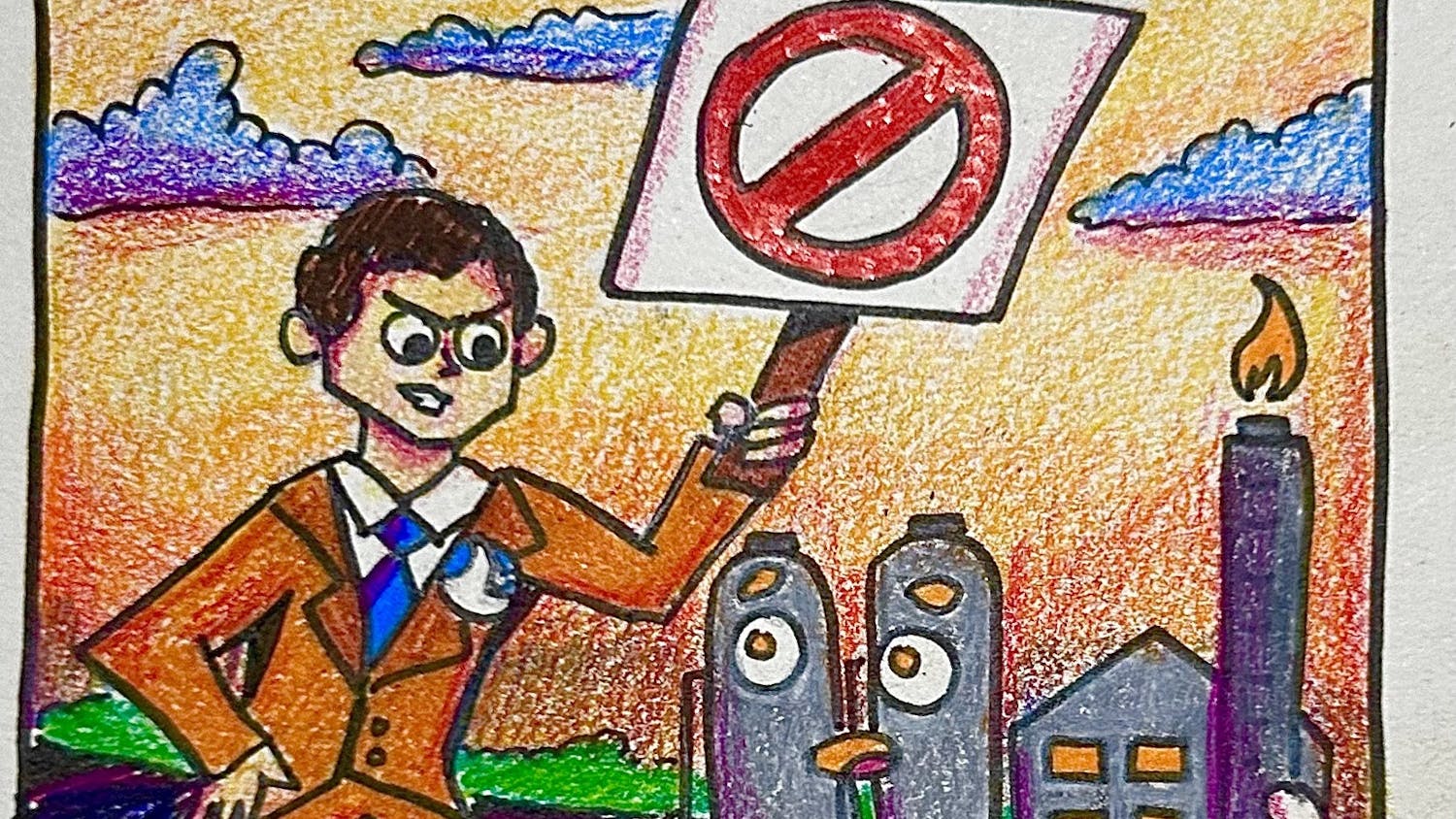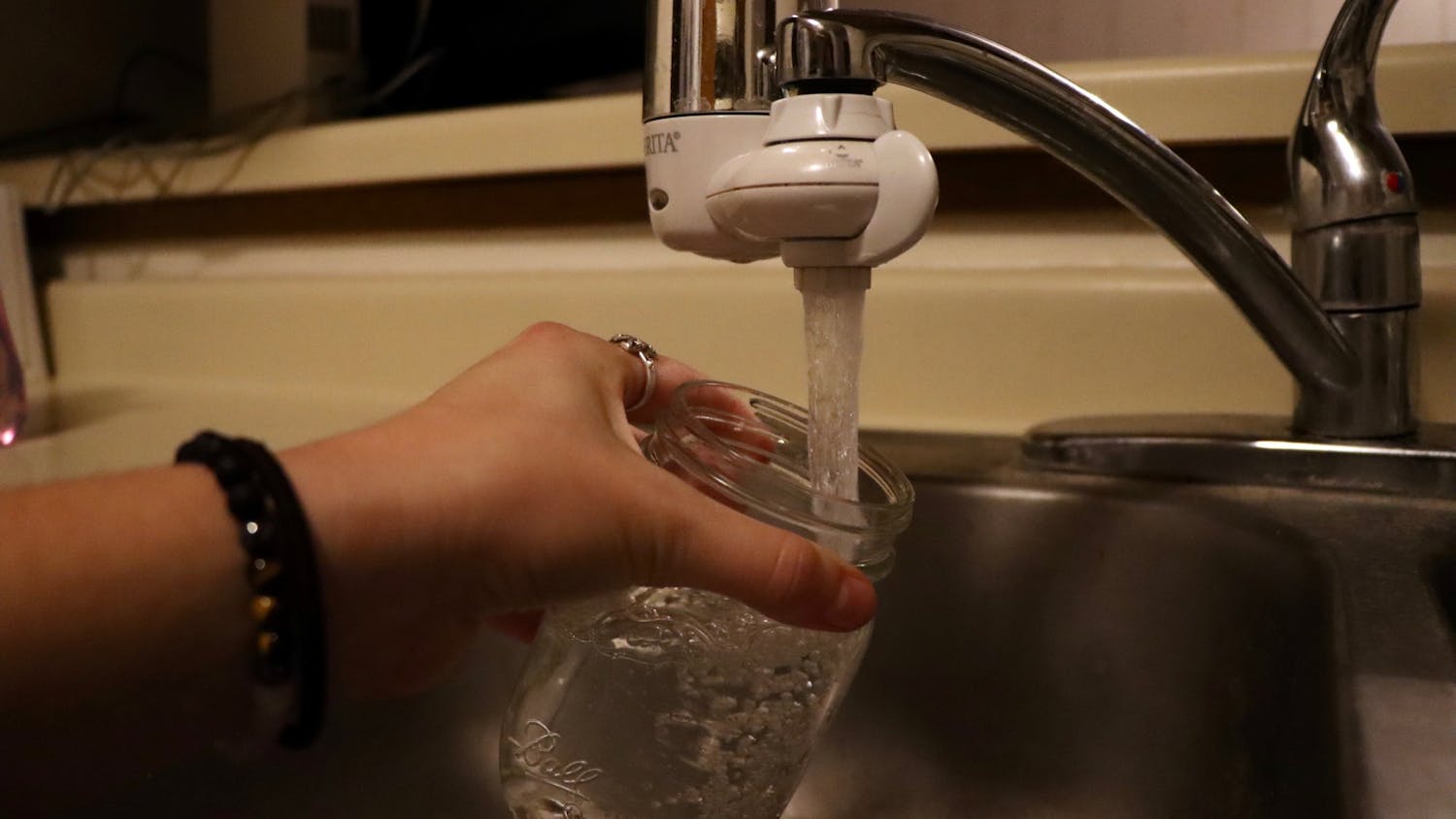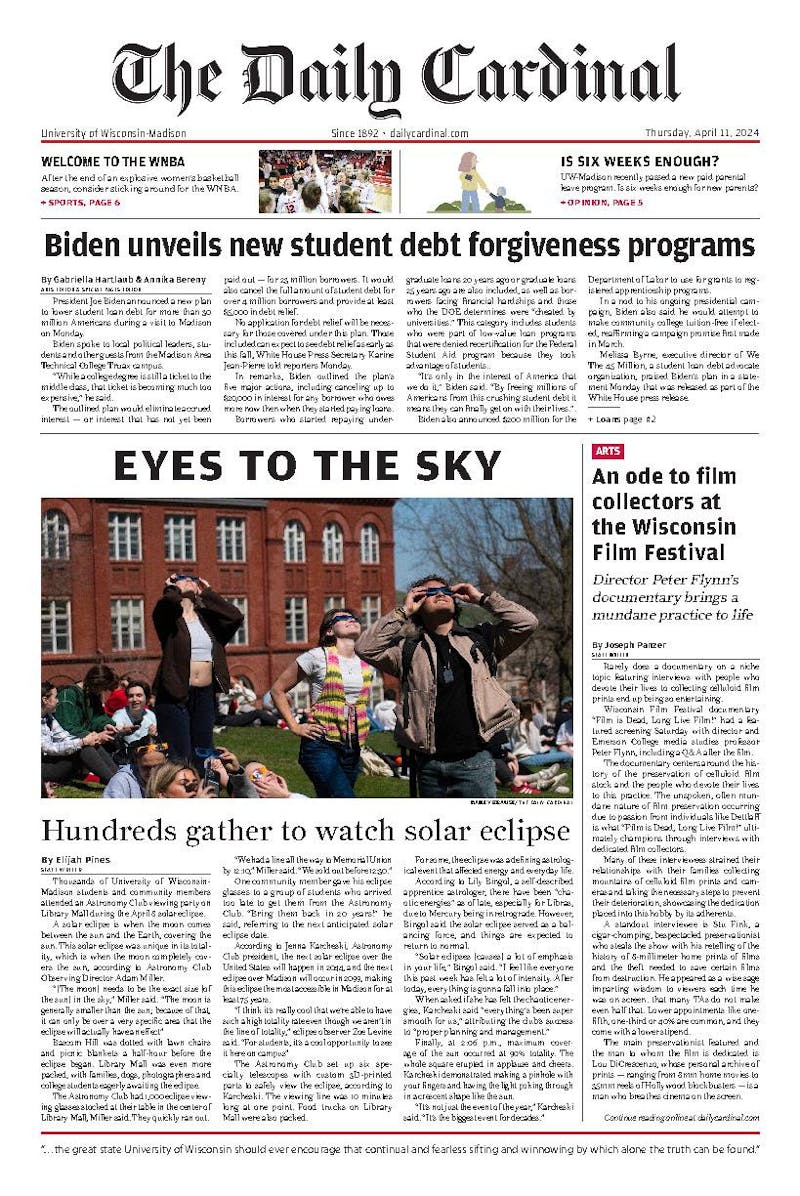The University of Wisconsin-Madison has long been established as a Midwestern mecca of research and creative work, with a myriad of research centers and offices in a multitude of fields. Dozens of professors and graduate students decide to come to UW-Madison to take part in this great endeavor, but there’s another facet to the research generated by the university.
Undergraduate students work in labs, in research centers and conduct their own research in capstones, colloquiums, practicums
How does one find a professor who actually wants undergraduates in their lab working on their projects? What options are there for a student who doesn’t know what exactly they’d like to study?
The Undergraduate Research Scholars (URS) program, located on the third floor of the Red Gym, is one way for students to get involved in research. The program, headed by Amy Sloan, places scholars with mentors who help facilitate their growth in their field.
“Research on campus can be very overwhelming, and URS helps students get past the ‘haziness’ of the networking process,” said Carina Carreño, the program
Professors, faculty, senior scientists, lecturers
The program accepts between 150 to 170 students as scholars every
Carreño recommended students who would like to get research experience or begin working in a lab apply to the Undergraduate Scholars Program or another program on campus, such as a research scholarship or fellowship.
“Our program gets you into a position, but also a perspective of how research is conducted,” said Carreño. “[Students] learn about what research actually means, and cultivate a sense of joy from what [they are] doing.”
Quite a few majors require research in their classes — be it a colloquium, a practicum, senior design or a capstone. In fact, UW-Madison is the only school in the country to accept first-year students into research programs, something that Carreño cited as critical to supporting students and fostering their research interests.
Many of the students continue in the program as fellows or continue their research after their first year has ended, meaning they’ll graduate with real-world experiences and skills which can then transfer to their career. Something the program stresses is building professional skills, such as grant writing, interviewing, presenting research and networking at conferences and symposiums. Here, students can not only articulate their ideas and defend their
Through this program and others like it, UW-Madison encourages the development of ideas and discussions on campus, as well as the growth of its students into thoughtful and practical researchers. With so much to offer already, undergraduate research is yet another example of a meaningful opportunity for students here at UW-Madison.

